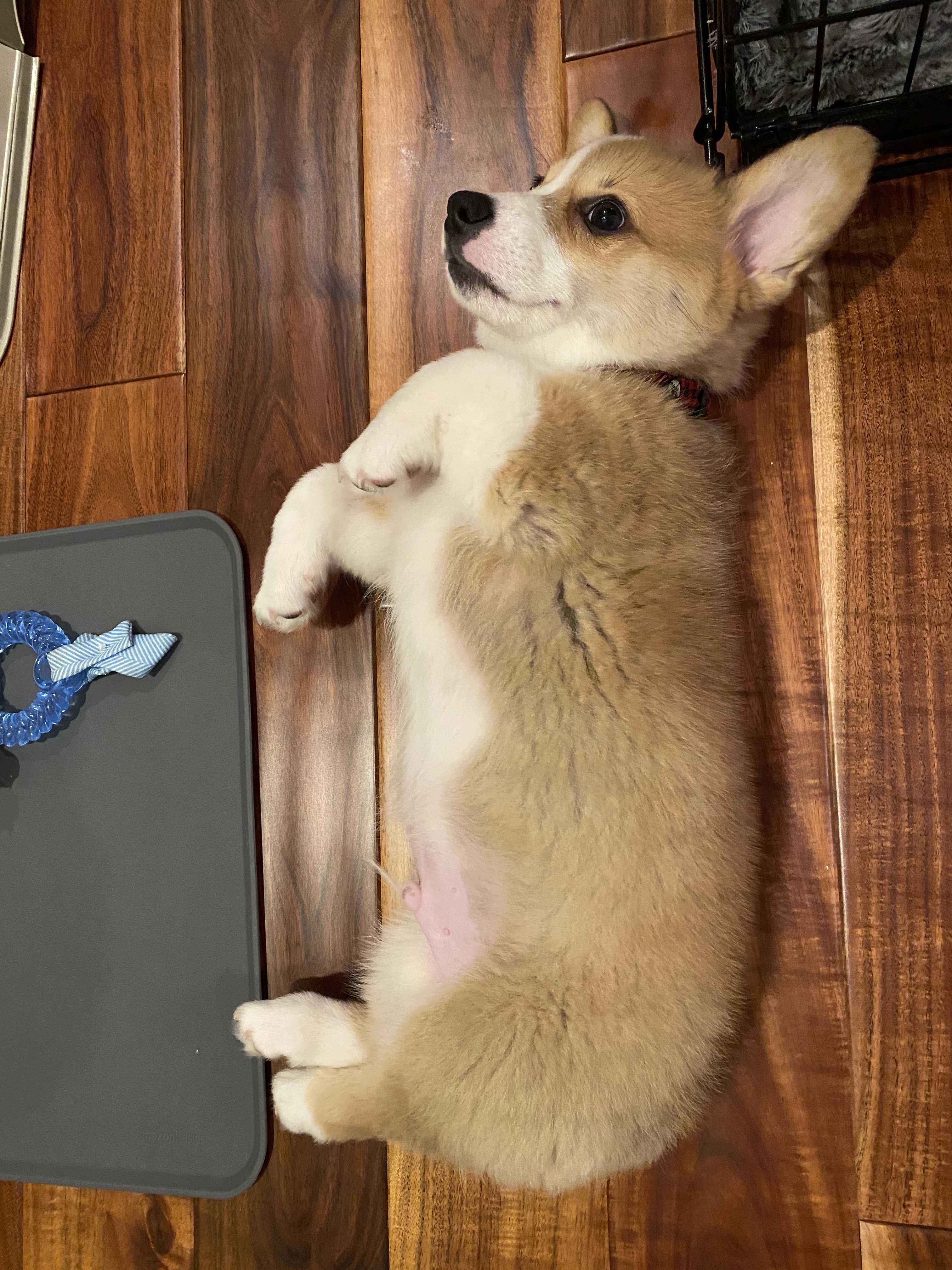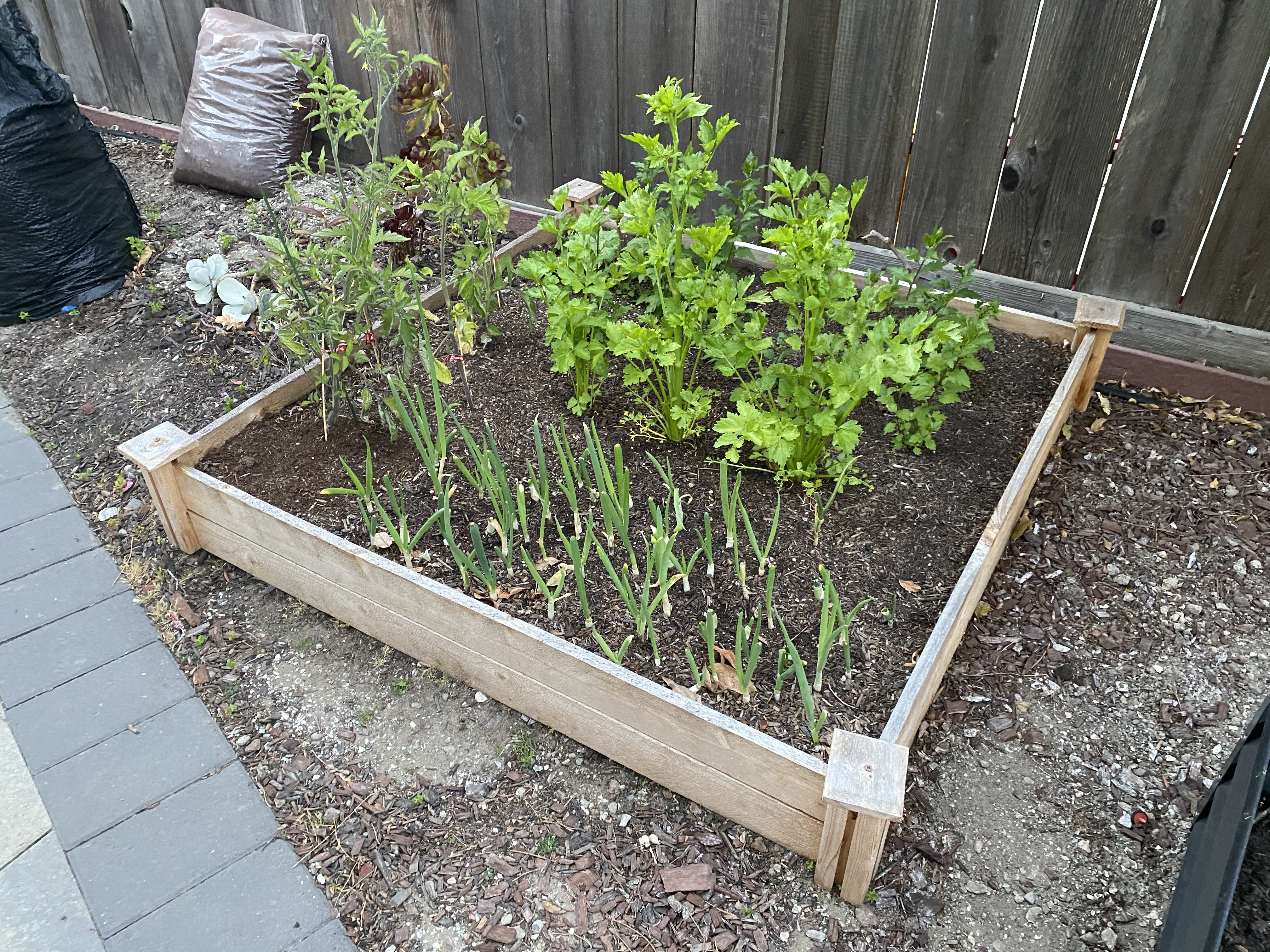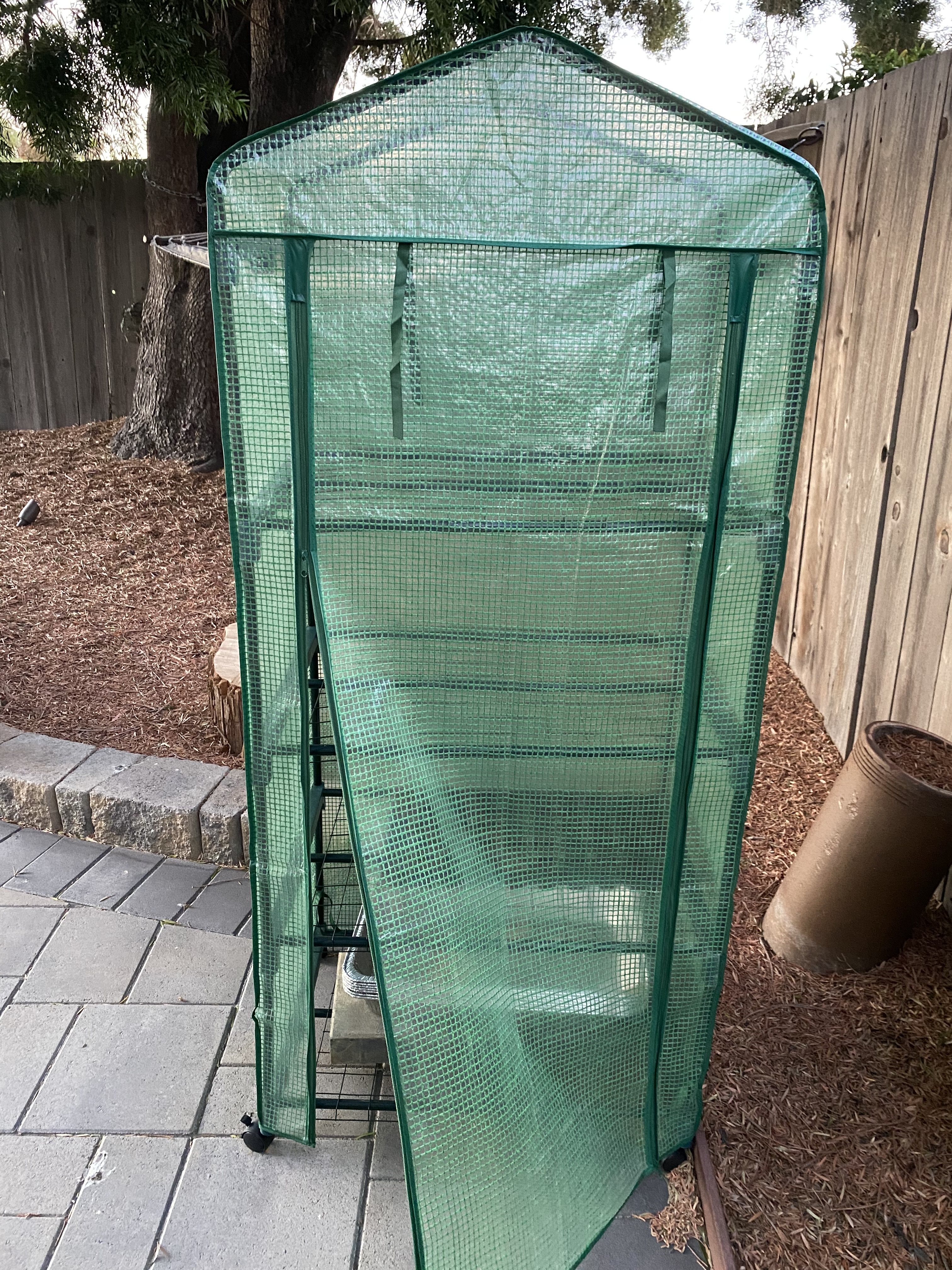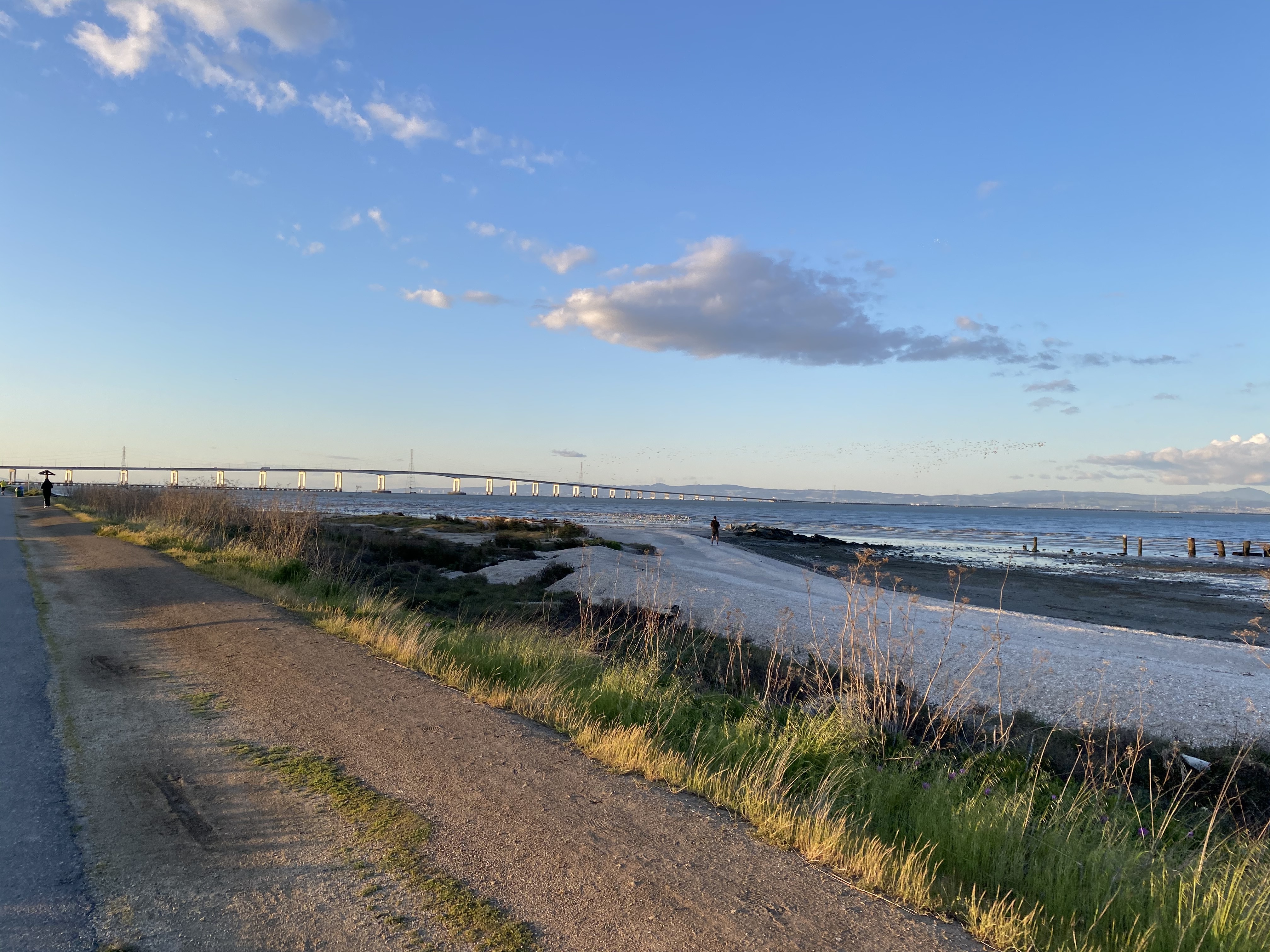NATHAN GE
POINTS TOTAL
- 0 TODAY
- 0 THIS WEEK
- 211 TOTAL
participant impact
-
UP TO70minutesspent exercising
-
UP TO80minutesbeing mindful
NATHAN's actions
Action Track: Healing & Renewal
Eat Mindfully
I will eat all of my meals without distractions, e.g., phone, computer, TV, or newspaper.
Action Track: Healing & Renewal
Go for a Daily Walk
Walkable Cities
I will take a walk for 20 minutes each day and take note of the infrastructure that makes walking more or less enjoyable, accessible, and possible.
Industry
Share Bioplastic Disposal Tips
Bioplastics
I will spend at least 120 minutes researching how to properly dispose of bioplastics in my city and share this information with 3 friends, family and/or colleagues.
Buildings
Install A Toilet Tank Bank
Low-Flow Fixtures
I will reduce the amount of water flushed and save up to 11 gallons (41 L) of water a day or 330 gallons (1,230 L) a month by installing a toilet tank bank.
Food, Agriculture, and Land Use
Keep Track of Wasted Food
Reduced Food Waste
I will keep a daily log of food I throw away during Drawdown Ecochallenge, either because it went bad before I ate it, I put too much on my plate, or it was scraps from food preparation.
Electricity
Invite a friend to calculate the carbon footprint of their household
Individual actions are important, but people and organizations working together can make a real impact. I will share a carbon calculator with a friend and invite them to calculate the carbon footprint of their household.
Food, Agriculture, and Land Use
Smaller Portions
Reduced Food Waste
I will use smaller plates and/or serve smaller portions when dishing out food.
Food, Agriculture, and Land Use
Tend A Garden
I will tend to a garden, or prepare for one, each day using sustainable gardening practices.
Participant Feed
-
REFLECTION QUESTIONFood, Agriculture, and Land UseWhile dishing food out, we tend to load our plates with more than we need. Using smaller plates helps to mitigate this. Aside from the environmental benefits, what other benefits might come from eating/serving smaller portions?
 NATHAN GE 6/03/2021 1:58 AMGenerally, our family. I’m not entirely sure of the cultural background of these eating practices, but from what I’ve seen most Chinese people have large platters of food that everyone shares. This is definitely unlike western dining, where most of the time each person is often served their own dish (unless it’s some potluck). This means that if some platters of food are not finished, we can always just save it for another day. Also, my parents have always taught me to put portions of food into my plate that I know I can finish. Additionally, I like to be as thrifty and resourceful as possible in every aspect of my life. This is the result of my upbringing as well as my innate desire to save and be resourceful. This basically means that I will literally eat every grain of rice off of my plate during mealtimes.All of this has contributed to making it easy to reduce food waste. This also means that this challenge was made a lot easier due to my pre-conditioned tendencies.Another factor that’s relevant to the completion of this challenge was the fact that I often skip breakfast and only eat lunch and dinner. This habit of mine became especially prevalent during quarantine, where I don’t use as much energy and require less food consumption, and my sleep schedule has resulted in skipping past breakfast time. This has led to a tendency of eating with less frequency but with larger portions. However, I am still able to consume everything I put on my plate.The environmental impact of generally eating enough to sustain yourself and not in excess is that you aren’t wasting energy to prepare unnecessary amounts of food. Not only does this benefit me in terms of my health, I can reduce the residual biproducts of leaving food waste such as the complete waste of the energy necessary to process the foods dumped. Although I am quite the opposite of wasteful when it comes to food, this challenge has made me more cognizant and more aware of the larger impact minute personal choices can have on the world.
NATHAN GE 6/03/2021 1:58 AMGenerally, our family. I’m not entirely sure of the cultural background of these eating practices, but from what I’ve seen most Chinese people have large platters of food that everyone shares. This is definitely unlike western dining, where most of the time each person is often served their own dish (unless it’s some potluck). This means that if some platters of food are not finished, we can always just save it for another day. Also, my parents have always taught me to put portions of food into my plate that I know I can finish. Additionally, I like to be as thrifty and resourceful as possible in every aspect of my life. This is the result of my upbringing as well as my innate desire to save and be resourceful. This basically means that I will literally eat every grain of rice off of my plate during mealtimes.All of this has contributed to making it easy to reduce food waste. This also means that this challenge was made a lot easier due to my pre-conditioned tendencies.Another factor that’s relevant to the completion of this challenge was the fact that I often skip breakfast and only eat lunch and dinner. This habit of mine became especially prevalent during quarantine, where I don’t use as much energy and require less food consumption, and my sleep schedule has resulted in skipping past breakfast time. This has led to a tendency of eating with less frequency but with larger portions. However, I am still able to consume everything I put on my plate.The environmental impact of generally eating enough to sustain yourself and not in excess is that you aren’t wasting energy to prepare unnecessary amounts of food. Not only does this benefit me in terms of my health, I can reduce the residual biproducts of leaving food waste such as the complete waste of the energy necessary to process the foods dumped. Although I am quite the opposite of wasteful when it comes to food, this challenge has made me more cognizant and more aware of the larger impact minute personal choices can have on the world. -
 NATHAN GE 6/02/2021 10:46 PM
NATHAN GE 6/02/2021 10:46 PM
EAT MINDFULLYI will eat all of my meals without distractions, e.g., phone, computer, TV, or newspaper.Eating without distractions is definitely something that I often struggle with, just because I’m someone that gets distracted easily and I often multitask. I’m someone who will literally take my phone into the shower or use the phone when I’m on the toilet just to maximize my time on my phone. But with the help of my parent’s strict set of rules and some self-control, I was able to curb my addiction of using my phone at the dinner table.Eating meals without distractions has definitely allowed me to enjoy my food a lot more and it forces (in a good way) me to talk with my family. However, out of all the three meals, dinner is the only meal time where the family is consistently all present, as we all have our own work throughout the day. Dinner has become a precious time for our family to catch up with each other. However, lunch and breakfast mostly serve as times to refuel in between study sessions or class time.At the start of the challenge, I would still occasionally leave some music on from my phone. This habit was mostly prevalent during dinner time, and it would eventually fade out near the end of the challenge. This stopped playing music obviously because to keep up with the challenge but also because my parents didn’t like the music. However, more problematic was the temptation to check my phone for message alerts, browse my phone if my hands get fidgety, or watch youtube while I enjoy a meal. I especially desired watching food-related videos on youtube while I eat, as it sometimes makes what I eat taste better. It was a struggle to curb these desires knowing that there is no immediate reward or consolation for these restrictive measures.During the middle of the quarter, our family got a Pembroke welsh corgi, which replaced the distraction of my cellular device or any other electronic device. This definitely helped ease my reliance on distractions such as my phone during mealtime. Although the dog can be considered a distraction on his own, interacting with the dog is far less disconnected from reality, and still facilitates some form of social interaction. Our family has definitely bonded over the presence of our dog, and mealtime is a perfect time where we can all observe the dog’s various cute behaviors.By the end of the quarter, the dog basically took up all of our attention during mealtimes, especially dinner. We attended to any needs the dog had while we ate. I guess the solution to eating meals without distractions such as phones, computers, or television is to just get a dog. -
REFLECTION QUESTIONFood, Agriculture, and Land UseAn average American throws out about 240 lbs of food per year. The average family of four spends $1,500 a year on food that they throw out. Where would you rather use this money?
 NATHAN GE 6/02/2021 10:38 PMThe garden project initially started as a project that my dad and my sister were interested in doing. However, as a part of the eco drawdown challenge, I decided to pitch in and contribute to the health of our backyard garden. In our backyard, we grow a variety of things ranging from kale and onions to herbs like basil and thyme. We have two large planter boxes lying in our backyard that contain the larger plants such as the kale and onions, and a “plant nursery” that initially housed all the various herbs we grew.The dirt we use is sourced from the Shoreway public recycling center, where we can get free compost. Unfortunately, the pile of compost spilled all over our car when we were transporting it from the center to our home. The stains left behind will likely be stinking up our minivan for the foreseeable future.We try to use water left over from washing rice to water our garden, as to not let water go to waste and also use the potential nutrients that rice water may have to improve the health of our plants.Another thing we are cognizant of is not watering plants in the case of rain. We can reduce the amount of water we give our plants on rainy days, thus saving a bit of water there.One problem we faced during the gardening process is the presence of bugs that eat away at our kale. We played with the idea of introducing ladybugs into the garden that will sustainably curb the presence of pesky insects, but we decided that might be too much of a hassle. In the end, the bugs didn’t become too much of a problem as most of the plants survived.Sadly, only the kale and onions survived, while the various herbs grown in the plant nursery died off before reaching full maturity. This may be due to underwatering, a lack of oxygen, or a variety of other factors; we aren’t too sure. The scale of our farming operation was definitely on the small side and was mostly done for fun. It will take a lot greater amount of effort to turn this into something that provides a substantial amount of food for the family. Nevertheless, the whole gardening process was a great learning experience that also proved to be quite therapeutic, and definitely a step in the right direction towards a more sustainable lifestyle.
NATHAN GE 6/02/2021 10:38 PMThe garden project initially started as a project that my dad and my sister were interested in doing. However, as a part of the eco drawdown challenge, I decided to pitch in and contribute to the health of our backyard garden. In our backyard, we grow a variety of things ranging from kale and onions to herbs like basil and thyme. We have two large planter boxes lying in our backyard that contain the larger plants such as the kale and onions, and a “plant nursery” that initially housed all the various herbs we grew.The dirt we use is sourced from the Shoreway public recycling center, where we can get free compost. Unfortunately, the pile of compost spilled all over our car when we were transporting it from the center to our home. The stains left behind will likely be stinking up our minivan for the foreseeable future.We try to use water left over from washing rice to water our garden, as to not let water go to waste and also use the potential nutrients that rice water may have to improve the health of our plants.Another thing we are cognizant of is not watering plants in the case of rain. We can reduce the amount of water we give our plants on rainy days, thus saving a bit of water there.One problem we faced during the gardening process is the presence of bugs that eat away at our kale. We played with the idea of introducing ladybugs into the garden that will sustainably curb the presence of pesky insects, but we decided that might be too much of a hassle. In the end, the bugs didn’t become too much of a problem as most of the plants survived.Sadly, only the kale and onions survived, while the various herbs grown in the plant nursery died off before reaching full maturity. This may be due to underwatering, a lack of oxygen, or a variety of other factors; we aren’t too sure. The scale of our farming operation was definitely on the small side and was mostly done for fun. It will take a lot greater amount of effort to turn this into something that provides a substantial amount of food for the family. Nevertheless, the whole gardening process was a great learning experience that also proved to be quite therapeutic, and definitely a step in the right direction towards a more sustainable lifestyle.-
 NATHAN GE 6/02/2021 10:39 PM
NATHAN GE 6/02/2021 10:39 PM
-
-
REFLECTION QUESTIONAction Track: Healing & RenewalWhat have you noticed on your daily walks? What have you enjoyed? What infrastructure changes could make your walks more enjoyable or possible?
 NATHAN GE 6/02/2021 9:56 PMThese daily walks have been a great time to reflect upon the present, think about the things I’m grateful for, and take a step back from the business and stress of life to recollect my thoughts. I enjoy the peaceful and serene nature of the night and the perceptible lack of people, so I often go out to walk during the night time. I usually go around 9 or 10pm when it’s not too cold. At the start of the challenge, the levee was one of the places I would always go to for walks. The levee was the perfect place for walks due to the comfortable ocean breeze that swept in from the bay, as well as the beautiful sights of the coastline. However, as time went on, the beautiful sights that made the levee special were obscured by ugly walls. The walls are a part of a project the city is undertaking to prevent potential floods from high tides in the future. The rising sea levels pose a direct threat to my local community. Now that I think about it, the effects of climate change are truly knocking at my front without me even realizing it. The harsh realities of climate change have presented itself in the form of this ugly wall. However, it does seem that these walls will look much prettier once fully constructed. Plus, the views of the bay/estuary won’t be obscured upon construction completion, which was my main concern. In the meantime, I have just been walking around the neighborhood and enjoying the local parks that litter the area. I can still feel the breeze from the ocean sweeping through the streets, as my neighborhood is still pretty close to the levee. Throughout my experience with the challenge, I can definitely say that city planners integrated a lot of accessible and enjoyable walking spots throughout the city. The parks that litter the city are populated with lush green foliage and playgrounds. The parks are definitely a beautiful aspect of the city and are often accompanied by access to the lagoon that snakes through my city. The levee (before the construction of the wall) was also designed to specifically be walked on/biked on to get a view of the bay.I tended to frequent walks out around my neighborhood when my workload was less as opposed to more, though it probably should have been the opposite. It usually takes only around 20 minutes to walk, and it gives me a much-needed mental reset. But I’m always locked into a bad mindset of not taking breaks such as a walk to maximize the amount of time I can work.Overall, this challenge to go on walks has definitely been beneficial to my mental wellbeing, and it has allowed me to appreciate the beautiful city I live in.
NATHAN GE 6/02/2021 9:56 PMThese daily walks have been a great time to reflect upon the present, think about the things I’m grateful for, and take a step back from the business and stress of life to recollect my thoughts. I enjoy the peaceful and serene nature of the night and the perceptible lack of people, so I often go out to walk during the night time. I usually go around 9 or 10pm when it’s not too cold. At the start of the challenge, the levee was one of the places I would always go to for walks. The levee was the perfect place for walks due to the comfortable ocean breeze that swept in from the bay, as well as the beautiful sights of the coastline. However, as time went on, the beautiful sights that made the levee special were obscured by ugly walls. The walls are a part of a project the city is undertaking to prevent potential floods from high tides in the future. The rising sea levels pose a direct threat to my local community. Now that I think about it, the effects of climate change are truly knocking at my front without me even realizing it. The harsh realities of climate change have presented itself in the form of this ugly wall. However, it does seem that these walls will look much prettier once fully constructed. Plus, the views of the bay/estuary won’t be obscured upon construction completion, which was my main concern. In the meantime, I have just been walking around the neighborhood and enjoying the local parks that litter the area. I can still feel the breeze from the ocean sweeping through the streets, as my neighborhood is still pretty close to the levee. Throughout my experience with the challenge, I can definitely say that city planners integrated a lot of accessible and enjoyable walking spots throughout the city. The parks that litter the city are populated with lush green foliage and playgrounds. The parks are definitely a beautiful aspect of the city and are often accompanied by access to the lagoon that snakes through my city. The levee (before the construction of the wall) was also designed to specifically be walked on/biked on to get a view of the bay.I tended to frequent walks out around my neighborhood when my workload was less as opposed to more, though it probably should have been the opposite. It usually takes only around 20 minutes to walk, and it gives me a much-needed mental reset. But I’m always locked into a bad mindset of not taking breaks such as a walk to maximize the amount of time I can work.Overall, this challenge to go on walks has definitely been beneficial to my mental wellbeing, and it has allowed me to appreciate the beautiful city I live in.-
 NATHAN GE 6/02/2021 10:00 PM
NATHAN GE 6/02/2021 10:00 PM
-
-
REFLECTION QUESTIONAction Track: Healing & RenewalMindful eating is healthier for us than eating with distractions. How does your eating experience differ when practicing mindfulness?






